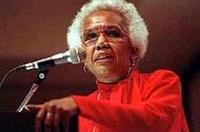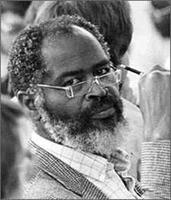Blacks
BLACKS began arriving in BC in 1858 from California, where discriminatory laws were making their lives intolerable. An advance party sailed to VICTORIA aboard the Commodore; they received a positive welcome and more followed until about 800 newcomers had settled in the colony. They were ordinary settlers, not fugitives from slavery, and by and large they received equal treatment. A few ventured to the goldfields but most opened businesses in Victoria or took up land elsewhere on the Island (see Mifflin GIBBS). A sizable number chose to locate on SALTSPRING ISLAND. As time passed racial antagonism grew, and after the American Civil War many Blacks returned to the US until the number in BC fell below 300. Prejudice was not formalized, however; Blacks were not barred from holding public office or from public institutions and they enjoyed formal legal and political equality with other colonists.
Prior to WWI immigration policy discouraged Blacks and the population grew slowly. In Vancouver an east end neighbourhood called Hogan's Alley emerged as a commercial and cultural centre of the Black population. (It was destroyed to make way for the construction of the Georgia viaducts in 1971.) The 1951 census counted only 438 people of African/Caribbean descent in BC. The BC Association for the Advancement of Coloured People was founded in 1958 as an advocacy group in VANCOUVER. One of its founders was Frank Collins, who was the city's first Black bus driver. His sister-in-law, Eleanor Collins, was a jazz singer who in 1955 hosted her own show on CBC television: she was the first woman with a national TV series in Canada.
With liberalized immigration laws in the 1960s, Black immigration increased dramatically, especially from the Caribbean region. Most Caribbean immigrants came from the former British colonies of Jamaica, Guyana, Trinidad-Tobago and Barbados. Another significant source was Haiti. Then, during the 1980s, large numbers of people began arriving directly from Africa for the first time, particularly Ghana, Nigeria, Ethiopia and Somalia.
With the increased immigration, Blacks became more prominent in all walks of life. In 1969 in Vancouver a Black theatre company was created, the Sepia Players, later Black Theatre West. In politics, Emery BARNES and Rosemary BROWN were the first Blacks elected to the BC legislature in 1972. By 2001 there were about 15,000 Blacks—African, American and Caribbean—living in BC. A Caribbean Day festival takes place annually in N VANCOUVER, organized by the Trinidad and Tobago Society.
Reading: Wayde Compton, After Canaan: Essays on Race, Writing and Region, 2010; Crawford Kilian, Go Do Some Great Thing: The Black Pioneers in British Columbia, 1978.


